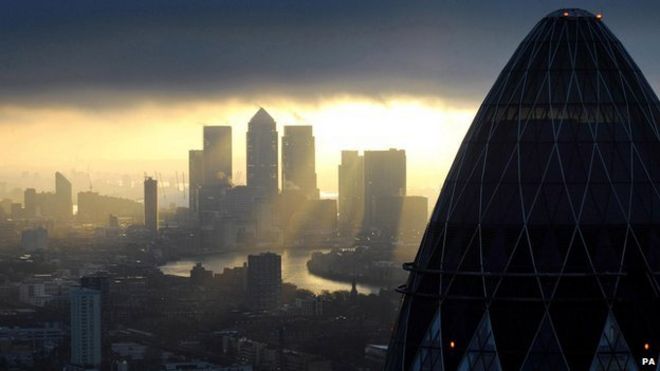- BBC
- Business

Five of the world's largest banks are to pay fines totalling $5.7bn (£3.6bn) for manipulating the foreign exchange market, US officials say.
Four of the banks - JPMorgan, Citigroup, Barclays, RBS - have agreed to plead guilty to US criminal charges.
The fifth, UBS, will plead guilty to rigging benchmark interest rates.
Barclays was fined the most, $2.4bn, as it did not join other banks in November to settle investigations by UK, US and Swiss regulators.
US Attorney General Loretta Lynch said that "almost every day" for five years from 2007, currency traders used a private electronic chat room to manipulate exchange rates.
Their actions harmed "countless consumers, investors and institutions around the world", she said.
Cartel threat
Regulators said that between 2008 and 2012, several traders formed a cartel and used chat rooms to manipulate prices in their favour.
One Barclays trader who was invited to join the cartel was told: "Mess up and sleep with one eye open at night."
Several strategies were used to manipulate prices and a common scheme was to influence prices around the daily fixing of currency levels.
A daily exchange rate fix is held to help businesses and investors value their multi-currency assets and liabilities.
'Building ammo'
Until February, this happened every day in the 30 seconds before and after 16:00 in London and the result is known as the 4pm fix, or just the fix.
In a scheme known as "building ammo", a single trader would amass a large position in a currency and, just before or during the fix, would exit that position.
Other members of the cartel would be aware of the plan and would be able to profit.
"They engaged in a brazen 'heads I win, tails you lose' scheme to rip off their clients," said New York State superintendent of financial services Benjamin Lawsky.
